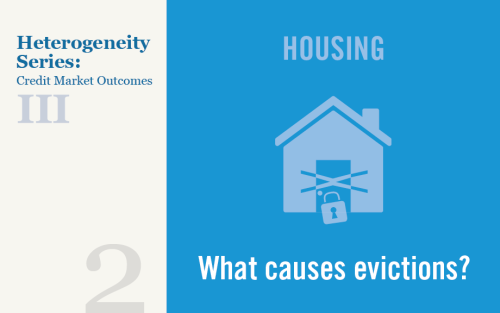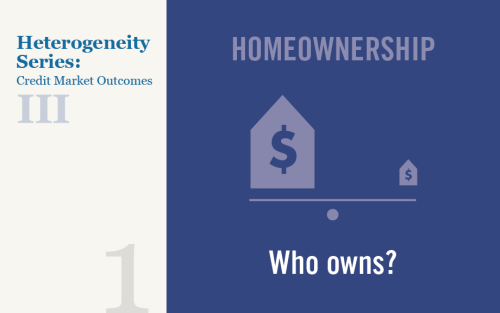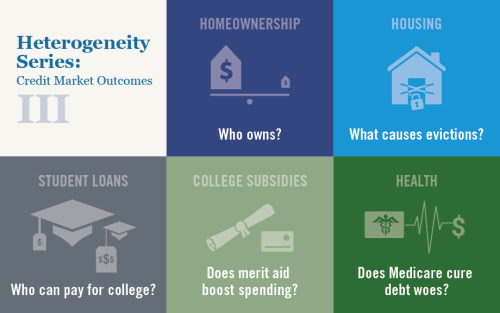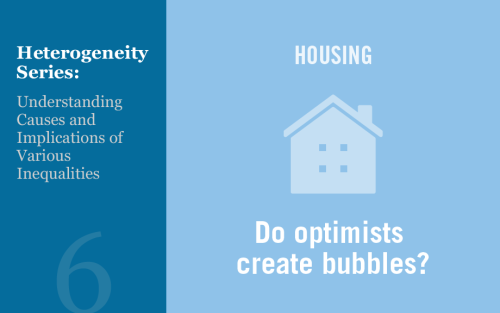Who Has Been Evicted and Why?

More than two million American households are at risk of eviction every year. Evictions have been found to cause prolonged homelessness, worsened health conditions, and lack of credit access. During the COVID-19 outbreak, governments at all levels implemented eviction moratoriums to keep renters in their homes. As these moratoriums and enhanced income supports for unemployed workers come to an end, the possibility of a wave of evictions in the second half of the year is drawing increased attention. Despite the importance of evictions and related policies, very few economic studies have been done on this topic. With the exception of the Milwaukee Area Renters Study, evictions are rarely measured in economic surveys. To fill this gap, we conducted a novel national survey on evictions within the Housing Module of the Survey of Consumer Expectations (SCE) in 2019 and 2020. This post describes our findings.
Inequality in U.S. Homeownership Rates by Race and Ethnicity

Homeownership has historically been an important means for Americans to accumulate wealth—in fact, at more than $15 trillion, housing equity accounts for 16 percent of total U.S. household wealth. Consequently, the U.S. homeownership cycle has triggered large swings in Americans’ net worth over the past twenty-five years. However, the nature of those swings has varied significantly by race and ethnicity, with different demographic groups tracing distinct trajectories through the housing boom, the foreclosure crisis, and the subsequent recovery. Here, we look into the dynamics underlying these divergences and explore some potential explanations.
Did Subprime Borrowers Drive the Housing Boom?

The role of subprime mortgage lending in the U.S. housing boom of the 2000s is hotly debated in academic literature. One prevailing narrative ascribes the unprecedented home price growth during the mid-2000s to an expansion in mortgage lending to subprime borrowers. This post, based on our recent working paper, “Villains or Scapegoats? The Role of Subprime Borrowers in Driving the U.S. Housing Boom,” presents evidence that is inconsistent with conventional wisdom. In particular, we show that the housing boom and the subprime boom occurred in different places.
Optimists and Pessimists in the Housing Market
Just Released: Press Briefing on the Evolution and Future of Homeownership
The New York Fed today held a press briefing on homeownership in the United States, in connection with its release of the 2019 Survey of Consumer Expectations Housing Survey. The briefing opened with remarks from New York Fed President John Williams, who provided commentary on the macroeconomic outlook and summarized the prospects for homeownership.
Did Tax Reform Raise the Cost of Owning a Home?

The 2018 slowdown in the housing market has been a subject of intense interest to the press and policymakers, including articles reporting a slowing in house price growth and a decline in home construction. Today we follow up on our colleagues’ research on whether the Tax Cut and Jobs Act of 2017 (TCJA) has contributed to a slowdown in the housing market, looking closely at what price signals tell us about the trade-off between owning and renting.
Is the Recent Tax Reform Playing a Role in the Decline of Home Sales?
From the fourth quarter of 2017 through the third quarter of 2018, the average contract interest rate on new thirty-year fixed rate mortgages rose by roughly 70 basis points—from 3.9 percent to 4.6 percent. During this same period, there was a broad-based slowing in housing market activity with sales of new single-family homes declining by 7.4 percent while sales of existing single-family homes fell by 4.4 percent. Interestingly though, these declines in home sales were larger than in the two previous episodes when mortgage interest rates rose by a comparable amount. This post considers whether provisions in the Tax Cuts and Jobs Act of 2017 (TCJA) might have also contributed to the recent decline in housing market activity.
The Sustainability of First‑Time Homeownership

In this post we take up the important question of the sustainability of homeownership for first-time buyers. The evaluation of public policies aimed at promoting the transition of individuals from renting to owning should depend not only on the degree to which such policies increase the number of first-time buyers, but also importantly on whether these new buyers are able to sustain their homeownership. If a buyer is unprepared to manage the financial responsibilities of owning a home and consequently must return to renting, then the household may have made little to no progress in wealth accumulation. Despite the importance of sustainability, to date there have been no efforts at measuring the sustainability of first-time homeownership. We provide an example of a first-time home buyer sustainability scorecard.

















 RSS Feed
RSS Feed Follow Liberty Street Economics
Follow Liberty Street Economics